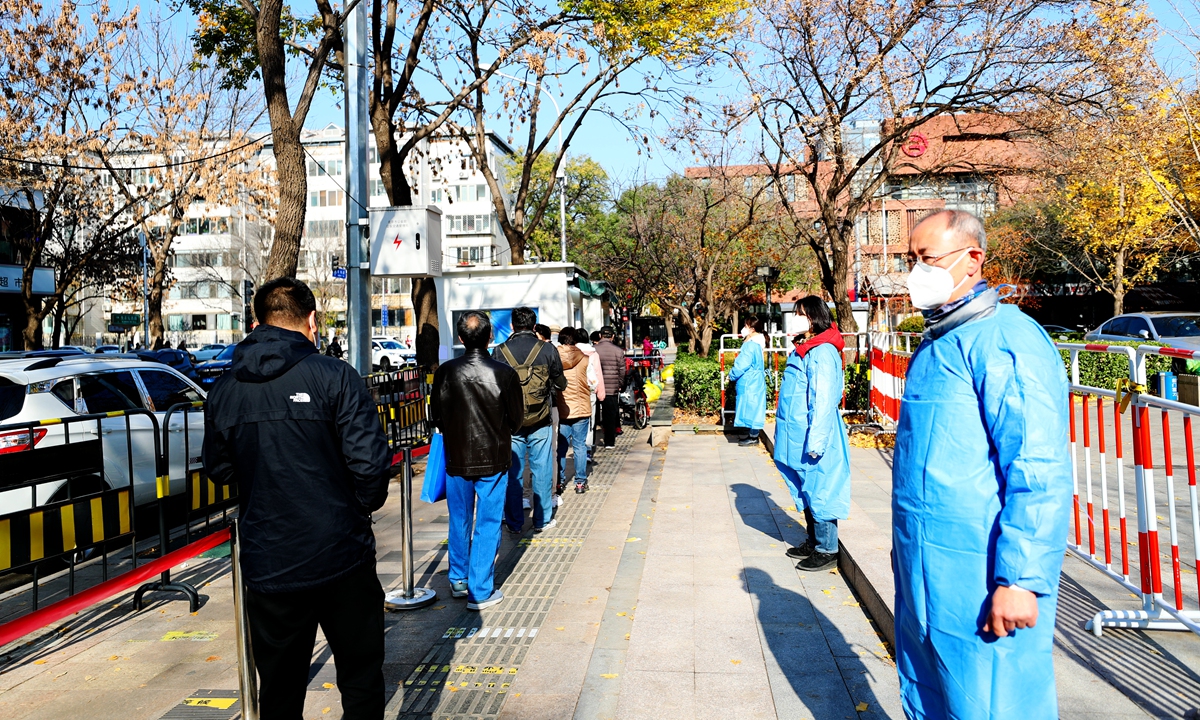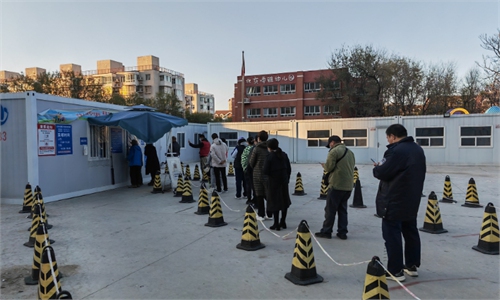COVID-19 booster vaccination rate for those aged 80 and above less than 30%: Beijing official

Local residents queue up to take nucleic acid tests in Beijing on November 14, 2022. Photo: IC
The COVID-19 booster vaccination rate of those aged 80 and above is less than 30 percent, based on the data collected from the latest outbreak in Beijing. The number of new cases continues to increase and cases detected among communities continue to rise. The city is at the most critical moment of fighting COVID-19, Beijing officials said at Tuesday's press briefing.
Two COVID-19 patients with severe symptoms, aged 52 and 89, have both not received the booster vaccination and the rate of full primary course and booster vaccination is low in patients aged 60 years and above, said Liu Xiaofeng, deputy director of the Beijing municipal disease prevention and control center. Liu suggested eligible residents, especially the elderly and children, should get vaccinated as soon as possible.
It's necessary to maintain a clear and full understanding of the situation and implement the 20 prevention and control measures to optimize the COVID-19 response and minimize the impact on economic and social development, said Xu Hejian, a spokesperson for the Beijing municipal government, at the press briefing.
Beijing is facing the most complicated and severe anti-epidemic situation since the outbreak of COVID-19, and the city has reported more than 3,000 cases in the latest outbreak.
On Tuesday alone, as of 3 pm, Beijing reported 634 local new cases including 135 patients detected among communities, according to the authorities. Chaoyang district has a high incidence of COVID-19, and other districts have also seen a rapid rise in cases.
Chaoyang district has been hard hit. The number of cases detected among communities continues to increase, and the risk of hidden transmission among communities is high, said a local official.
Starting from Thursday, residents in Beijing should present a 48-hour negative nucleic acid test before entering enterprises, commercial buildings, shopping malls, supermarkets, hotels, restaurants, scenic spots and other public places, or when taking public transportation, according to the authorities.
Residents who return or come to Beijing should take a nucleic acid test three times within three days, according to the authorities.
The city has strengthened measures to restrict people gathering including encouraging employees to use online meetings, implementing closed-loop management in key places such as nursing homes and enhancing disinfections in public venues. All departments should strictly strengthen personnel management, and take health monitoring, nucleic acid detection and other preventive and control measures, according to the authorities.
The authorities said they have been making efforts to ensure the daily supply of meat, eggs, vegetables and other daily necessities.

